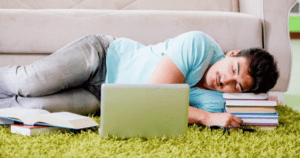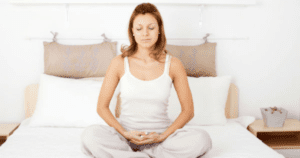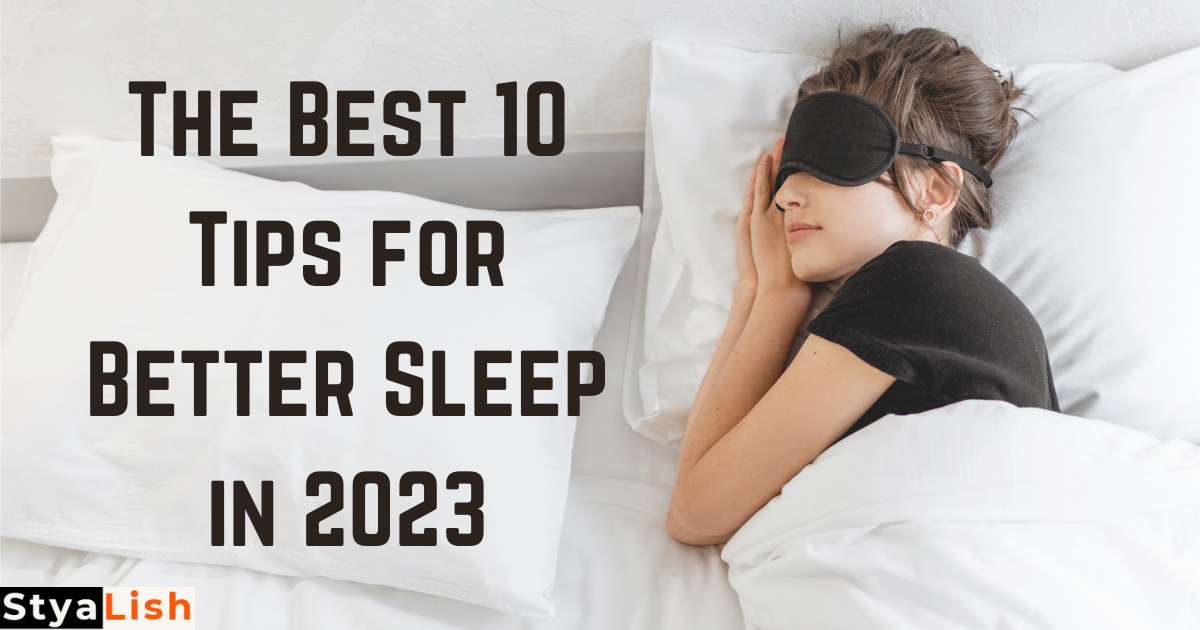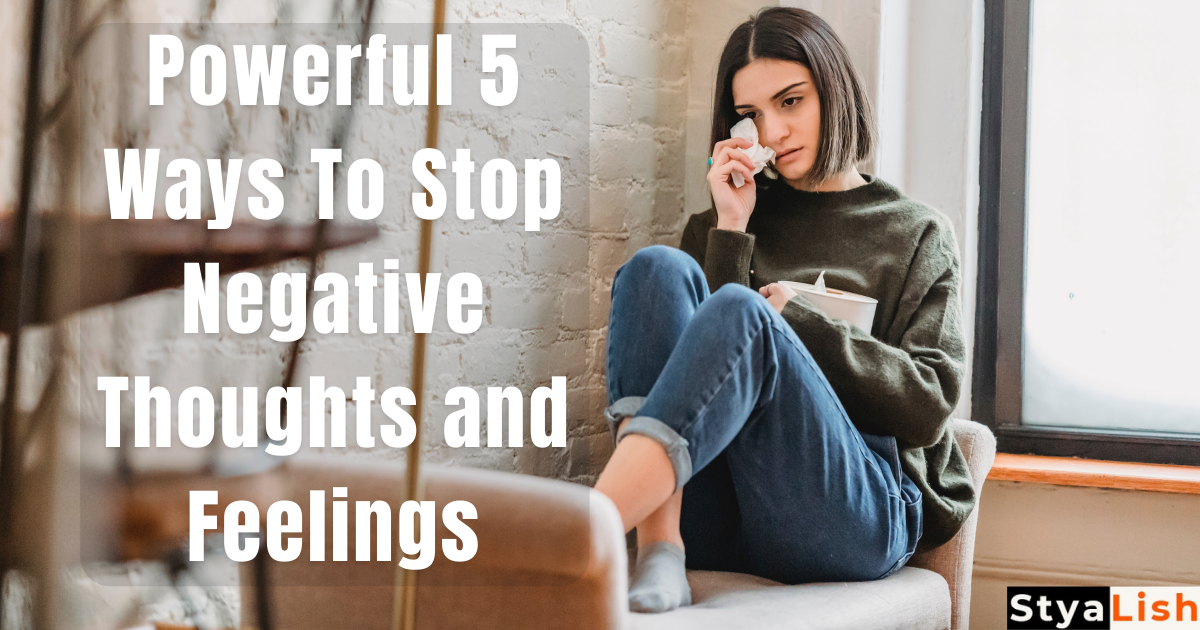Tired! Need to get adequate sleep time?
You need not forever suffer through sleepless nights.
Think about the best ideas for improved slumber, such as sticking to a regular sleep schedule and increasing your everyday activity. But, unfortunately, many things might get in the way of you getting a decent night’s rest, from stress at work and family obligations to physical ailments.
As a result, it’s no surprise that sound sleep might be hard to come by.
Use the below guidelines as a jumping-off point to have peaceful sleeping.
Unique practical 10 ways to welcome peaceful sleeping
The things preventing you from getting a good night’s rest may be beyond your control. But there are ways to improve your sleeping patterns. Top 10 Pro Tips for Better Sleep in 2023.
1. Maintain a regular bedtime routine

Plan on getting no more than eight hours of shut-eye each night. A minimum of seven hours of sleep per night is necessary for an adult to function at their best. So if you’ve been sleeping for eight hours straight, you don’t need any more.
Instead, maintain a regular sleep-wake schedule, even on the weekends. Maintaining a regular schedule will help your body regulate sleep and wake times more effectively.
If you’re in bed for 20 minutes and still awake, try relaxing with a good book or music. Then, if you’re feeling sleepy, head back to bed. You can do this as many times as necessary, but stick to the same bedtime and wake-up time each day. This can be one of the best sleep ideas.
2. Watch what you put into your body

Eat lightly before bed, but not too little. Heard often, right?
It’s a fact!
In particular, only have a small dinner within the last several hours before bed. Discomfort could keep you awake. It’s important to use caution with nicotine, coffee, and alcohol as well. Nicotine and caffeine both have energizing effects that last for hours and might make it difficult to fall asleep.
Further, alcohol can induce drowsiness at first, but it can later impair sleep. Therefore, this idea is among the best sleep ideas list and is very effective.
3. Establish a tranquil atmosphere

Have some peace in a cold, dark room. It could be harder to sleep if you’re exposed to light later at night. Wait to stare at your phone, tablet, or computer screens until after midnight. Then, you may use fan, earplugs, or blackout curtains.
Better sleep may result from relaxing activities like taking a bath or practicing relaxation techniques right before bed. This idea is among the best sleep ideas that can prove very useful.
4. Stay away from a nap during the day

Napping throughout the day can help you get through the day, but it should be brief, and it could affect your overnight sleep—nap for no more than an hour and never in the evening.
On the other hand, night shift workers may need to catch up on sleep with a late-afternoon nap before heading into the office. This tip is one of the best tips for better sleep.
5. Taking control of your worries

Stress, stress, Go Away!
Don’t go to sleep worrying about things you can’t control. Instead, write down your thoughts and put them away for further consideration. Learning to regulate your stress might be helpful.
Get back to fundamentals by organizing your space, establishing priorities, and assigning responsibilities.
Listen, worry can also be reduced through meditation.
6. Physical activity

Taking a brisk walk every day will help you maintain a healthy weight and reduce the number of times you wake up throughout the night to use the restroom. In addition, natural sleep hormones like melatonin are more effective when you work out.
According to research published in the journal Sleep, postmenopausal women who exercised for 3.5 hours per week had an easier time falling asleep than those who exercised for fewer hours per week. The key is to be mindful of when you schedule your workouts.
Too much exercise before bedtime may cause insomnia. A person’s natural circadian rhythm can be supported by exercising in the morning while bright daylight is present.
7. Establish a bedtime routine

If you remember your childhood, you probably fell asleep easier after your mother read you a bedtime story and tucked you in each night. A consistent routine performed before night can have a comparable effect on an adult.
Sleep rituals serve as cues to the brain and body. Take a glass of warm milk. Do something relaxing like taking a bath. Put on tunes and wind down.
8. Stay away from the booze and the coffee

Neither wine nor chocolate should be included in any pre-bedtime snack. Caffeine, which is found in chocolate, is a stimulant. The effects of alcohol are surprisingly comparable. Although it induces mild drowsiness, it acts as a stimulant and prevents restful sleep.
Avoid acidic foods (like citrus juices) and spicy foods (like chili peppers) if you suffer from heartburn. This is indeed a very different tip from the tips for better sleep.
9. Relaxation

The bills keep coming in, and the list of things you need to accomplish is endless. Night-time is a standard time for worries from day to surface. Repetitive mental or physical activity that causes stress is a stimulus.
The chemicals released in response to a perceived threat prevent one from falling asleep. Take some downtime just before bed to relax. Better sleep and less stress during the day are two benefits of practicing the relaxation response.
To calm down, practice deep breathing. Breathe in deeply and gently, then let out your breath. This tip among the tips for better sleep is very effective.
10. Use the sleep aids cautiously

Your doctor may recommend hypnotic sleep drugs if modifications to your lifestyle have not helped you get to sleep. Although these medications can help you sleep more quickly and stay asleep for longer, they also come with their own risks.
Always be honest with your doctor about the medications you’re currently taking. Drug interactions are possible when using sleep aids. Do not exceed the minimum effective dose, and keep treatment to a minimum. If your doctor tells you to do anything, do it. Take your medication at the appropriate time and in the correct dosage (typically just before bed). This can be considered one of the best tips for better sleep.
Quick Summary!
The above are some best tips for better sleep. As we age, our sleep habits often alter for the worse, making for more than a few nights of tossing and turning and a groggy morning. When women experience hot flashes and other menopause symptoms, this phenomenon commonly develops.
The average number of hours of sleep every night decreases with age. The body’s circadian rhythms also undergo some shifts. Your body’s ability to sense and react to shifts in light and darkness is supported by this internal clock. When it changes as we get older, it can be more challenging to get to sleep and stay asleep. Check also Things to do Before Going on Bed for Better Sleep.
FAQs
When should one seek medical attention to get proper sleep?
Having trouble falling asleep is a fairly common occurrence that affects almost everyone. However, if you regularly have insomnia, it's best to consult a doctor. Accurate diagnosis and treatment of sleep disturbances help you receive the restful night's sleep you need.
What are some medical consequences of not having a proper sleep?
Having difficulties sleeping affects all of us at some point, but chronic insomnia is different. Sleep deprivation has far-reaching consequences for our health, including an increased risk of obesity, heart disease, and type 2 diabetes, and not only because it makes us cranky and irritable throughout the day.






4 Comments